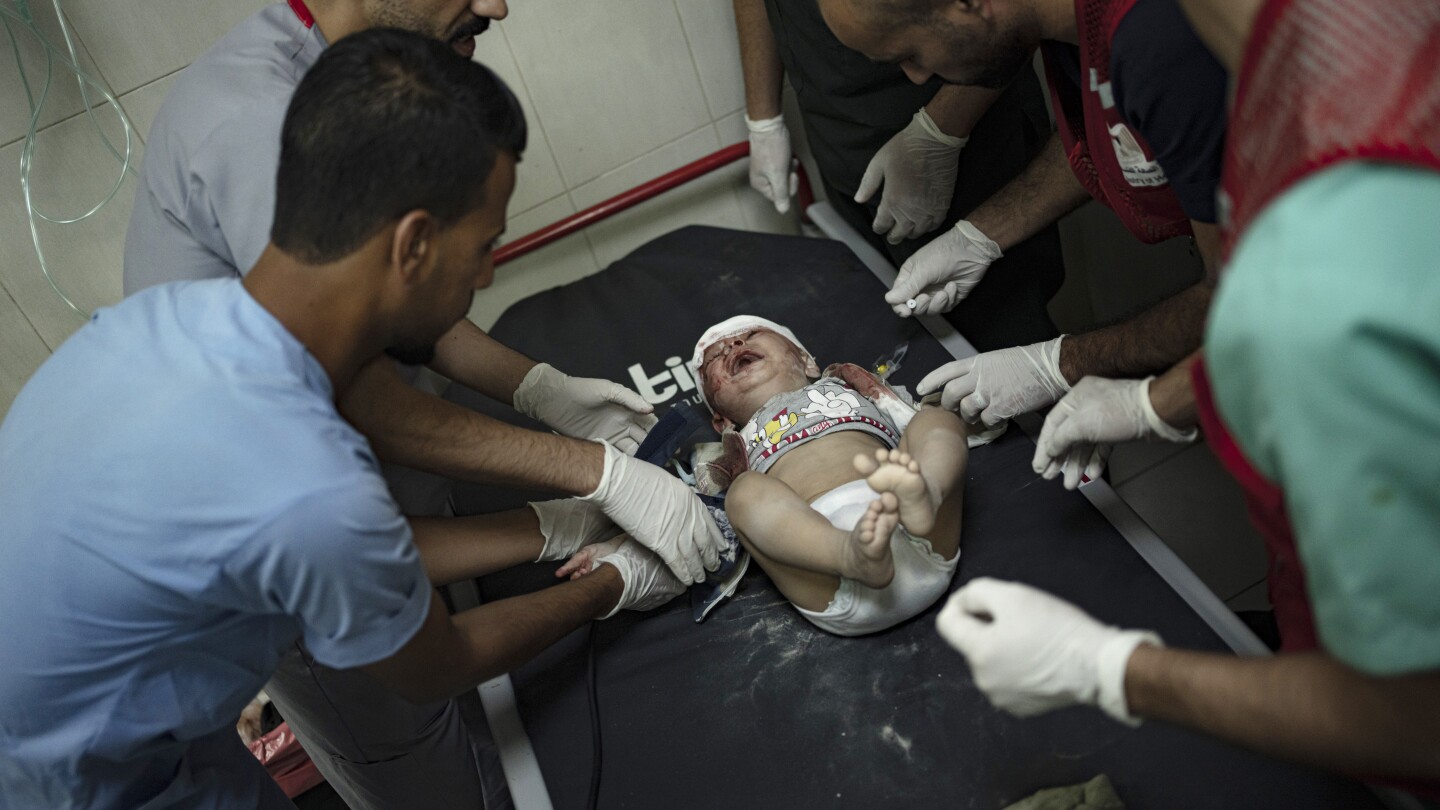His life hinges on the constant flow of electricity, which is in danger of running out imminently unless the hospital can get more fuel for its generators. Once the generators stop, hospital director Iyad Abu Zahar fears that the babies in the ward, unable to breathe on their own, will perish.
“The responsibility on us is huge,” he said.
Doctors treating premature babies across Gaza are grappling with similar fears. At least 130 premature babies are at “grave risk” across six neonatal units, aid workers said. The dangerous fuel shortages are caused by the Israeli blockade of Gaza, which started — along with airstrikes — after Hamas militants attacked Israeli towns on Oct. 7.
At least 50,000 pregnant women in Gaza are unable to access essential health services, and some 5,500 are due to give birth in the coming month, according to the World Health Organization.
At least seven of the almost 30 hospitals have been forced to shut down due to damage from relentless Israeli strikes and lack of power, water and other supplies. Doctors in the remaining hospitals said they are on the brink. The U.N. agency for Palestinian refugees said Sunday it has enough fuel to last three days to serve critical needs.
“The world cannot simply look on as these babies are killed by the siege on Gaza … A failure to act is to sentence these babies to death,” said Melanie Ward, chief executive of the Medical Aid for Palestinians aid group.
None of the 20 aid trucks that crossed into Gaza on Saturday, the first since the siege was imposed, contained fuel, amid Israeli fears it will end up in Hamas’ hands. Limited fuel supplies inside Gaza were being sent to hospital generators.



Well as long as the lesser evil only kills women and children, they’re perfectly fine, then.